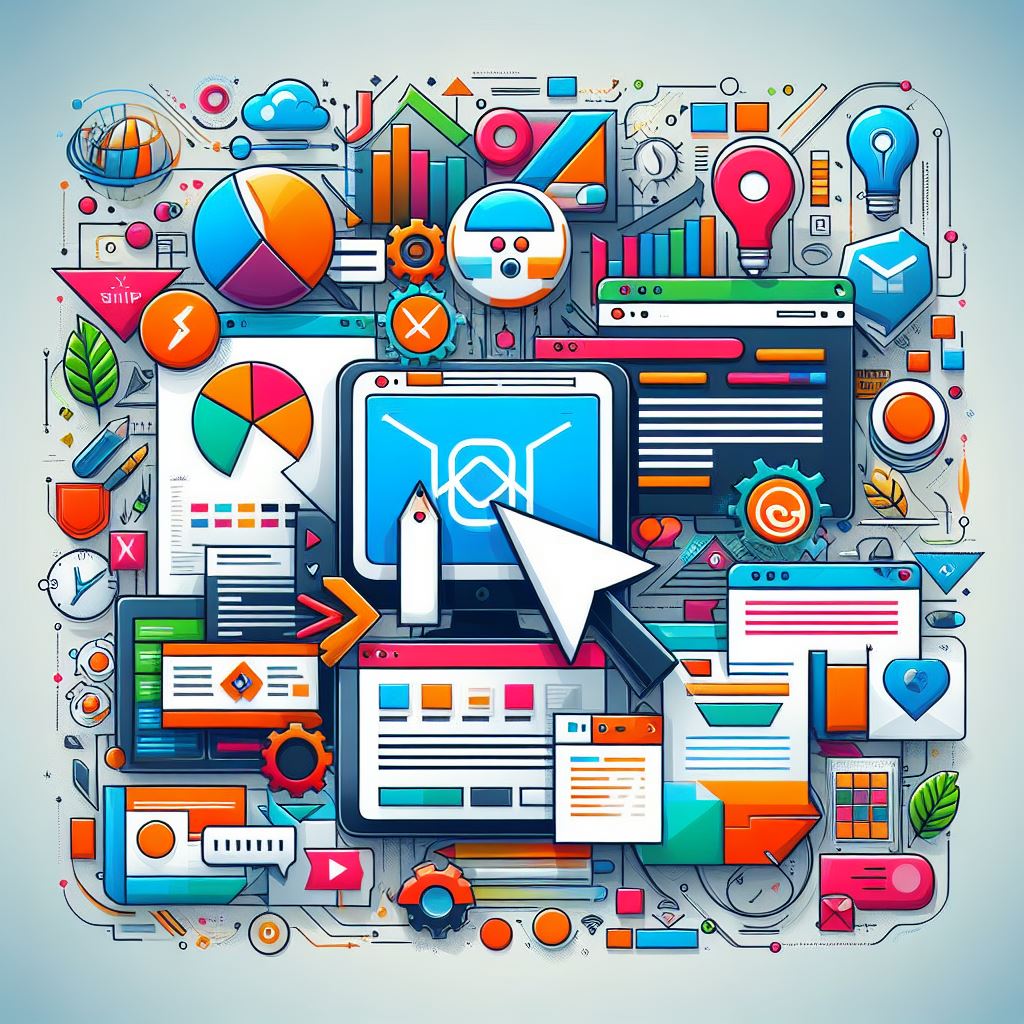
As the landscape of the global workplace undergoes its most significant transformation in decades, the future of artificial intelligence (AI) stands at the forefront of this revolution. With advancements in AI revolutionizing the way businesses operate, its role in enhancing productivity and redefining the essence of work cannot be overstated. The integration of AI technologies is not only streamlining operations but also propelling industries toward unprecedented efficiencies. This evolution signifies a pivotal moment in the history of work, underscoring the critical importance of understanding how artificial intelligence future trends will shape the professional world.
This article delves into the manifold ways through which the future of artificial intelligence is optimizing workplace productivity. It will explore AI’s impact in transforming workplace efficiency, demonstrating how these technologies are being adapted across different sectors to revolutionize output and processes. Additionally, the narrative will address the broader implications of AI on job evolution, shedding light on the shifting dynamics between human workers and their AI counterparts. Navigating through the complexities, the article will also consider ethical and practical considerations that come with harnessing AI, setting the stage for a comprehensive look at the future of artificial intelligence in the professional realm.
Artificial Intelligence in Transforming Workplace Efficiency
Automation of Routine Tasks
Artificial intelligence significantly enhances workplace efficiency by automating routine tasks, which are often time-consuming and repetitive. For instance, AI technologies like robotic process automation (RPA) streamline administrative tasks such as data entry, basic reporting, and handling routine customer queries through chatbots. This automation allows employees to focus on more complex and creative tasks, thereby increasing overall productivity and reducing the likelihood of human errors.
Enhanced Decision-Making
AI’s impact on decision-making processes is profound, providing tools that assist in making informed choices based on predictive analytics and scenario analysis. AI models, including decision trees, help analyze vast datasets to forecast business outcomes and enhance decision accuracy. These capabilities allow businesses to respond more effectively to market dynamics and customer needs, leading to better business performance. Additionally, AI-driven tools like Kensho Technologies aid investors by processing news and financial reports to provide insights into market trends.
Improving Employee Productivity
AI technologies contribute significantly to improving employee productivity by enabling more efficient task management and prioritization. AI-driven platforms like Forecast use historical data to optimize workflows and resource allocation, ensuring that projects are completed efficiently without overburdening the staff. Furthermore, generative AI systems have been shown to increase productivity by [up to 66%](https://www.nngroup.com/articles/ai-tools-productivity-gains/), with the most substantial gains observed in cognitively demanding tasks. This improvement is particularly notable in environments where AI tools support less-skilled workers, helping to narrow the skill gap and enhance creative output.
Impact of Artificial Intelligence Across Different Industries
Healthcare
Artificial intelligence is significantly transforming healthcare by enhancing diagnostic accuracy, optimizing treatment plans, and improving patient outcomes. AI technologies are employed across various medical fields including radiology, where they assist in image acquisition and analysis, and in gastroenterology for identifying benign versus malignant colon polyps. AI also plays a crucial role in predictive healthcare, improving the accuracy of diagnoses and reducing the time required for patient evaluation. Furthermore, AI-driven systems are utilized in administrative healthcare tasks, streamlining processes and reducing the workload on healthcare staff.
Finance
In the financial sector, AI has become a cornerstone of innovation, particularly in banking and financial services. AI technologies are used to enhance customer experiences, streamline transaction processes, and improve regulatory compliance. For example, AI-driven chatbots provide 24/7 customer service, while advanced algorithms improve fraud detection and creditworthiness assessments. Financial institutions leverage AI for better risk management and to offer personalized banking services, significantly enhancing operational efficiency and customer satisfaction.
Manufacturing
AI’s impact on manufacturing is profound, with its application ranging from predictive maintenance to quality control and supply chain optimization. AI technologies enable manufacturers to reduce downtime, enhance production efficiency, and ensure product quality. Intelligent robotics and machine learning algorithms are integral in automating production lines and improving the precision of manufacturing processes. Additionally, AI aids in energy management and sustainability efforts within the industry, optimizing resource utilization and reducing waste.
Marketing
The marketing industry has embraced AI to create more targeted and effective campaigns. AI tools analyze consumer behavior and large datasets to personalize marketing efforts and optimize campaign performance. For instance, AI enhances customer segmentation, automates content creation for various marketing channels, and optimizes pricing strategies in real-time. These AI-driven strategies not only increase engagement and conversion rates but also provide marketers with insights to continually adapt to changing consumer preferences.
By integrating AI across these diverse industries, businesses are not only achieving greater efficiency and productivity but are also able to offer enhanced services and products tailored to the specific needs and preferences of their customers.
Artificial Intelligence and Job Evolution
Shifting Job Roles
The integration of Artificial Intelligence in the workplace is significantly transforming job roles. Tasks that were once manual or repetitive are now being automated, creating new opportunities for employees to engage in more strategic activities such as decision-making and problem-solving. This shift is not only changing the nature of existing jobs but is also introducing entirely new roles within industries. For example, the role of data analysts has evolved from merely collecting and analyzing data to preparing data for machine learning models and interpreting complex AI-generated insights.
New Career Opportunities
The AI revolution is opening up a variety of dynamic and high-paying job roles. As industries ranging from healthcare to finance embrace AI, the demand for skilled professionals such as machine learning engineers, data scientists, and robotics engineers is soaring. Each of these roles requires a specific set of skills and experience, highlighting the diversity within AI career paths. For instance, robotics engineers are now working on advanced applications from manufacturing to personal assistant robots, while NLP engineers focus on improving human-computer interaction.
Upskilling and Reskilling
To remain relevant in an AI-driven workplace, employees must adapt by acquiring new skills and technologies. The rapid pace of technological change means that many traditional skills may become obsolete, necessitating both upskilling and reskilling. Organizations are increasingly investing in learning platforms that offer digital learning journeys, incorporating various educational tools to help employees transition into AI-enhanced roles. This approach not only helps in adapting to new job roles but also fosters a culture of continuous learning and innovation within the workforce.
Artificial Intelligence Ethical and Practical Considerations
Data Privacy and Security
Artificial Intelligence systems often rely on vast amounts of data, raising concerns about how personal information is collected, processed, and used. Breaches of data privacy can occur when AI systems access sensitive personal information like health records or financial transactions without proper safeguards, leading to violations of individuals’ rights to privacy. To protect sensitive data, robust data protection measures are paramount, including encryption of data at rest and in transit, and implementing strict access controls to limit data access to authorized personnel only.
Bias and Fairness
AI technologies may inadvertently perpetuate bias and discrimination, leading to unfair outcomes, particularly in sensitive areas such as hiring, lending, and law enforcement. Biased data sets, flawed algorithms, and inadequate testing can exacerbate existing inequalities and undermine privacy rights. To address these issues, employing techniques such as bias detection, fairness testing, and algorithmic auditing are crucial to identify and mitigate biases in AI algorithms. Additionally, ethical accountability ensures that AI systems make decisions that are transparent, justifiable, and aligned with societal values, addressing data privacy and preventing the perpetuation of existing biases and discrimination.
Accountability and Transparency
The development of AI systems brings significant risks, including the assumptions and biases of the creators influencing the outcomes of AI, leading to unintended consequences. Implementing mechanisms that enable transparency and responsibility, such as AI audits and explainable AI (XAI) systems, is essential. These systems are designed to provide explanations for decisions made by AI, making it easier for individuals and organizations to understand and justify their actions. Transparency in AI helps to build trust between humans and machines, ensuring that AI systems are used in a responsible and ethical manner.
Job Displacement
The influence of AI on the job market is undeniable, with significant impacts on human employment. AI-induced job displacement often leads to economic and social challenges for the individuals concerned, with a ripple effect through the economy as interconnected sectors also feel the impact. Over time, the economy may adjust, with new job opportunities arising in sectors that leverage AI technology. However, this transition requires investment in re-skilling and education to match the displaced workforce with new opportunities, highlighting the need for targeted policies and support mechanisms.
Conclusion
Through this exploration of the transformative power of artificial intelligence in the workplace, it is evident that AI is not just a futuristic concept but a present reality profoundly impacting productivity across various industries. From streamlining operations and enhancing decision-making processes to generating new job roles and necessitating the upskilling of the workforce, the influence of AI is widespread. The integration of artificial intelligence technologies offers a promising avenue for businesses to achieve greater efficiencies, underscores the need for continuous innovation, and highlights the importance of ethical considerations in its implementation.
As we stand on the brink of this AI-driven era, the broader implications of these advancements reach far beyond immediate economic benefits, shaping the very fabric of the professional landscape and the nature of work itself. It prompts a call to action for organizations and individuals alike to embrace the potential of AI while advocating for responsible use that prioritizes fairness, privacy, and transparency. Emphasizing the critical role of AI in the future workplace, this discussion also encourages continued research and dialogue on how to harness this technology in a way that maximizes its benefits and mitigates its challenges, ensuring a future where artificial intelligence serves to amplify human potential and inclusivity in the professional sphere.
FAQs
1. How does artificial intelligence enhance productivity in the workplace?
Artificial intelligence significantly boosts workplace productivity by automating repetitive and time-consuming tasks. This automation allows employees to dedicate more time to critical, strategic, or creative aspects of their work, thereby enhancing overall efficiency.
2. What does the future hold for AI in the workplace?
The future of AI in the workplace is expected to focus on augmenting and improving job roles, particularly those requiring in-person interactions, critical decision-making, and specialized skills. Research, such as the study by Pizzinelli et al in 2023 using O*NET metrics, explores how AI might enhance rather than simply automate these roles.
3. What projected impact does artificial intelligence have on the workplace?
The emergence of Artificial General Intelligence (AGI) and Artificial Super Intelligence (ASI), which could develop within the next 5-10 years, is poised to have a profound impact. AGI will be capable of performing any intellectual task that a human can, potentially leading to significant automation across various sectors.
4. How is AI improving business performance?
AI improves business performance by efficiently analyzing large datasets to predict outcomes and trends with high accuracy. This ability enables businesses to make quicker, more informed decisions, thus securing a crucial competitive edge in today’s dynamic business environment.

